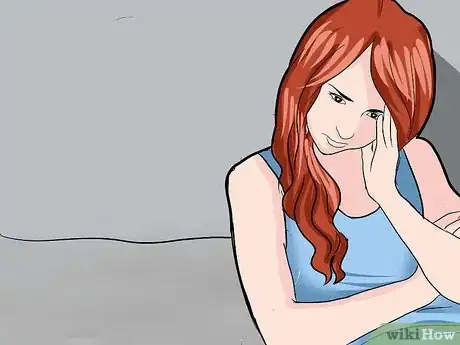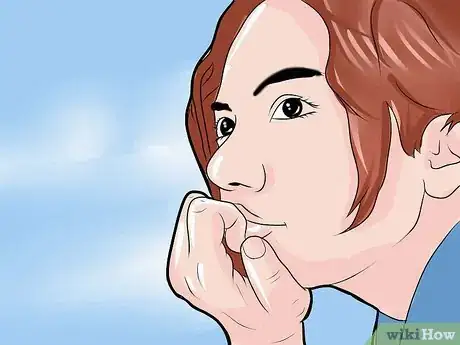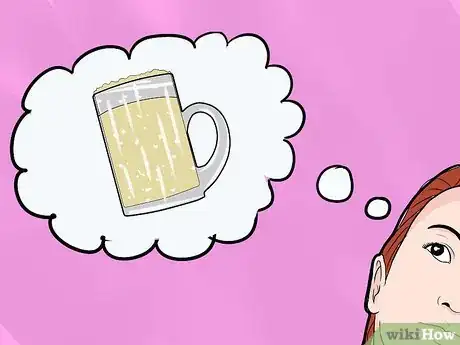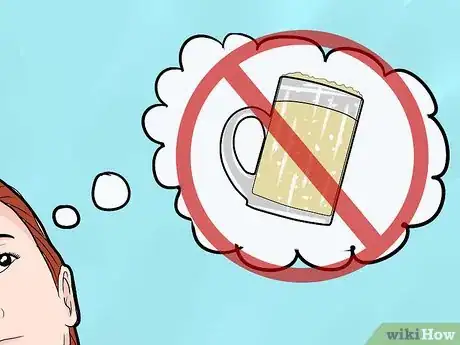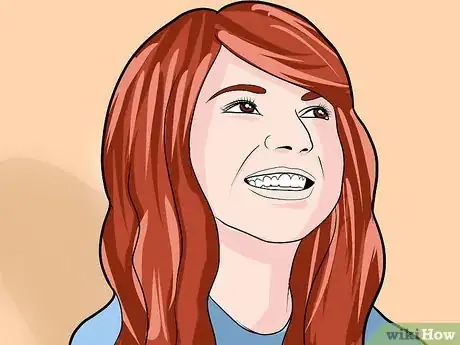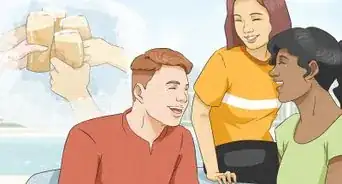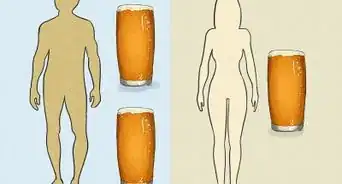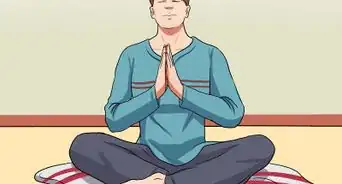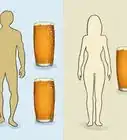This article was co-authored by Tala Johartchi, PsyD. Dr. Tala Johartchi is a Clinical Psychologist based in the Los Angeles, California metro area. With expertise and advanced training in Evidence-Based Practices and therapeutic/behavioral frameworks, Dr. Johartchi specializes in working with individuals, couples, and families experiencing Substance Disorders, Love Addiction and Codependency, Post Traumatic Stress Disorder, as well as common co-occurring disorders such as Depression, Anxiety, and Relational/Attachment difficulties. She earned an MA and PsyD in Clinical Psychology from The American School of Professional Psychology at Argosy University, San Francisco.
There are 8 references cited in this article, which can be found at the bottom of the page.
wikiHow marks an article as reader-approved once it receives enough positive feedback. This article received 30 testimonials and 100% of readers who voted found it helpful, earning it our reader-approved status.
This article has been viewed 925,030 times.
Many people who recognize that they have a drinking problem aren’t aware that there are alternatives to Alcoholics Anonymous. This article, for example, outlines the CORE process, which stands for Commit, Objectify, Respond, Enjoy. By employing these simple techniques, you can beat the bottle quietly -- and for free -- in the dignity of your own home.
Steps
Implementing CORE
-
1Commit yourself to permanent abstinence from alcohol. You do not need alcohol to survive. Make a plan to quit for good.[2] When you're ready, say the words "I will never drink again." Pay attention to how you feel. If you are scared, panicked, angry, depressed, or feeling badly in some way, that’s the booze brain at work. And, in all honesty, you WILL feel bad at first. Your body has been operating with this chemical for...however long. It thinks it needs it. It has to learn how to operate without it now, and learning has a curve. Give it time to learn.
- Your neurons, which have been dulled by booze for quite some time, and now are all a-buzz with activity, which means that rest and sleep will probably be hard to come by for a couple of days. In the meantime, your booze brain will tell you lies; call it a liar and watch late-night TV till it passes!
-
2Objectify your booze brain. The human brain is much smarter than the booze brain, which doesn't understand that you can live without alcohol. You can outsmart your booze brain by learning to think of it as something other than yourself as well as hear when it’s speaking to you. Objectify it by saying "it wants a drink" instead of "I want a drink." When you objectify the booze brain, you realize that it has no power over you. You are in control and it is an outsider. All it can do is try to trick you into drinking, but you can outsmart it every time.[3]
- It will try anything to get you to drink because it falsely believes that you need to drink to survive. If you are feeling bad, it will tell you to drink to feel better. If you are feeling good, it will tell you to drink to party or celebrate. In fact, it will try to use any event in your life (good or bad) as an excuse to drink. Whenever you have any thought or feeling that suggests drinking, that is the booze brain trying to trick you.
-
3Respond to your booze brain by saying "never" whenever you hear it asking for a drink. This causes the booze brain to back down because it recognizes that it is not in control and there is no way it can force you to pour alcohol down your throat. It will try many different ploys to trick you into drinking (especially at first), but now that you have this information, you will know what it is up to every time. Remember, any thought or feeling that suggests drinking at any time is the booze brain at work. When you recognize it, just tell it "I never drink" and continue with whatever you were doing. Don't argue with it; just tell it that you never drink.[4]
- If your friends offer you a drink, say "No thanks, I'm quitting." You can also say "I'm slowing down" or even just "No, thanks" if you don’t want to get into it. However, if the people in your circle tend to drink, it’s probably best that you be up-front with them so they can support you by being discreet. If they don’t support your decision, find new friends.
- Your booze brain will get more and more discouraged as time goes on, bothering you less and less. Before too long, you'll be an expert at dealing with your booze brain, making it easy to stay sober.
- Tell yourself that you're doing this to be a happier and healthier person.
- Think ahead about the alternatives to alcohol that you can have when you're spending time with friends, so that you still feel part of what's going on. Substitute the drink with something non-alcoholic like a mocktail, alcohol-free beer or soda. Let friends know this is your new boundary so they can be supportive.
-
4Enjoy your recovery from alcohol dependence. When you decide to quit drinking forever, one of the first difficulties you will face is simply dealing with the day-to-day reality without alcohol. If you sit at home with nothing to do, your booze brain will pester you for a drink and it will be very difficult to make it stop because your human brain is idle. This is why you will need to develop something to occupy your human brain. Find (or rediscover) hobbies that give you something to show for your time. Get in shape, fix up an old car, or start a new relationship. Learn to cook, play an instrument, decorate, or go out with (sober) friends. Write helpful articles on wikiHow. Set aside the money you used to spend on drinking and watch your piggy bank grow. Celebrate every sober anniversary whether it’s a week or a decade: things are going to keep getting better from here on out.[5]
- Don't be afraid that you’ll slip or relapse: that fear is the booze brain at work trying to give you an excuse to give up.
- Eventually, the CORE process becomes automatic, meaning you won't have to make a big effort to stay sober. You may feel bad, angry, sad, or depressed at times, but that's normal. If the booze brain tries to use these feelings as excuses to drink, you’ll know what it’s up to and how to deal with it. You’re better, smarter, funnier, wittier, and even taller when you stand up to your booze brain!
Warnings
- If you have a very serious drinking problem and quit "cold turkey" for a period of time without the aid of medical or social support, but then choose to drink again, there is a real possibility that you will "binge" far in excess of your previous drinking habits. This is your booze brain trying to get all of its "missed" alcohol back all at once. Do not do this under any circumstances. This "super-binge" can lead to alcohol poisoning, liver failure, and death.⧼thumbs_response⧽
- If you have a very serious drinking problem, you may need to check into a detox center for a few days to avoid medical problems. However, if you know that AA is not for you, don't let the detox center enroll you in an "addiction treatment" program after the physical symptoms are over; treatment programs are almost all based on the 12 steps of AA. Go home, do the CORE process, and just don't drink.⧼thumbs_response⧽
Things You'll Need
- Something Else To Do. Giving yourself a distraction from your booze brain is an absolute priority!
- Reminders. Sometimes, your booze brain will try to trick you into drinking by bringing up memories of good times, fun, parties, or anything pleasant that involved alcohol. You’ll need tools to counter this, such as a list of the reasons you quit drinking. Don't forget all the negative things that drinking has brought into your life, such as guilt, embarrassment, social isolation, legal problems, financial hardships, ruined relationships, and a host of health concerns. If your booze brain says, "Remember that time you were drunk and..." you can finish the thought with, "I hurt someone close to me; I got arrested; I missed work; or I was sick for an entire day." Remember, the perceived, temporary positives do not in any way equal the real, long-term negatives of drinking.
References
- ↑ https://www.thersa.org/discover/publications-and-articles/rsa-blogs/2012/02/seriously-why-do-we-drink-alcohol
- ↑ https://www.helpguide.org/articles/addictions/overcoming-alcohol-addiction.htm
- ↑ https://addictionresource.com/alcohol/how-to-quit-drinking/
- ↑ https://addictionresource.com/alcohol/how-to-quit-drinking/
- ↑ https://addictionresource.com/alcohol/how-to-quit-drinking/
- https://www.psychologytoday.com/us/blog/inside-rehab/201312/when-quitting-drinking-is-your-resolution-list
- SMART Recovery - Self Management And Recovery Training
- LIFERING - Sobriety, Secularity and Self-Help
- Rational Recovery™ - Recover Now
About This Article
You can quit drinking without Alcoholics Anonymous by understanding your addiction and ignoring your cravings. When you first get sober, set your intention and make a clear plan so you know exactly what you’re doing. Whenever you get a craving, distract yourself by doing something you enjoy, like watching TV, learning a new hobby, or cooking a meal. Understand that it’s only a small part of you that wants the drink and it will go away once it realizes it’s not getting what it wants. Quitting alcohol can be a long road, so enjoy each milestone. Celebrate a week sober, a month sober, 3 months sober and so on. Your cravings might seem strong at first, but they’ll decrease in power the longer you ignore them. If you have a severe alcohol addiction, visit your doctor so they can help you quite safely and direct you to other resources. For more tips, including how to understand why you drink, read on.
